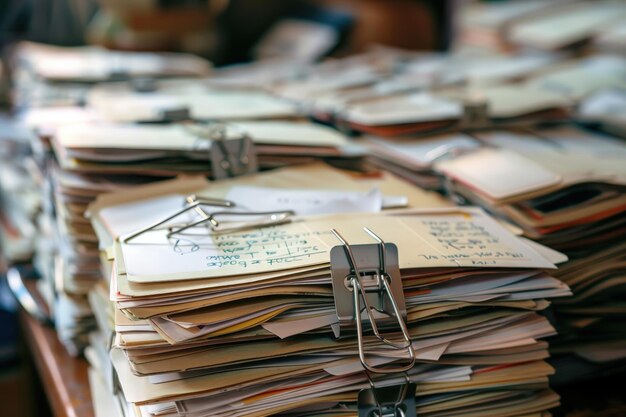The Essential Guide to Keeping Tax Returns: How Long Should You Really Hold On to Those Papers?
Tax season often brings a sigh of relief once the filing is done. But what about those tax returns and documents? Are you supposed to keep every single paper forever, or is it okay to toss them once the ink dries? Let’s delve into the ins and outs of how long you should keep your tax returns and the reasons behind it.
Why Keeping Your Tax Returns Matters
Keeping tax returns isn’t just about decluttering or fulfilling a mundane obligation. There’s a strategic incentive to organizing your tax documents. Here’s why:
- Audit Protection: If the IRS decides to audit you, they typically have three years from the date you filed your return. Keeping your documents ensures you’re prepared for any verification needs.
- Future Filings Assistance: Past tax returns often serve as helpful references for future filings, especially when it comes to deductions and carryovers.
- Proof of Income: These documents can serve as proof of income if you plan to apply for loans or mortgages.
General Guidelines for Retention
How many years should you keep your tax returns? The general rule of thumb is to keep tax documents for at least three years. However, certain circumstances may require different retention periods.
The Three-Year Rule
The IRS advises taxpayers to keep returns and supporting documents for three years. This is based on the statute of limitations for auditing. However, it's essential to factor in specifics that can lengthen this timeframe.
Key Point: If you've filed your taxes on time, the three-year period begins from the original filing deadline.
Extended Situations
There are several scenarios in which you'll need to hold onto your records for longer:
- Substantial Understatement of Income: If you underreported your income by more than 25%, the IRS may assess additional taxes up to six years after you filed the return.
- Fraud or Non-filing: In cases of tax fraud or if you haven’t filed a return, there's no time limit for IRS audits.
- Claiming a Loss: If you've submitted a claim for a loss from worthless securities or bad debt deduction, keep those records for seven years.
Specific Document Types and Their Timeframes
Some documents deserve special attention. Here’s a breakdown:
- Employment Tax Records: Keep for at least four years after the tax becomes due or is paid, whichever is later.
- Real Estate Documents: Hold onto these for as long as you own the property plus an additional three years after you've sold it due to potential capital gains assessments.
- Dividend and Stock Transactions: Because dividends may be questioned for stock sales, retain these records until seven years after selling the security.
Organizing Your Tax Records: Best Practices
A clutter-free and organized tax file system can save time and stress, especially during an audit or when future tax seasons roll around.
Strategies for Efficient Organization
- Create a Filing System: Use folders or binders segmented by year. Consider labeling folders by category, such as income, deductions, and credits.
- Digitize Your Documents: Scanning and storing electronically ensures easy access and reduces physical clutter. Remember, IRS accepts digital formats.
- Back-Up Copies: Whether physical or digital, always have a back-up. Use cloud services or external storage for digital files.
When Is It Safe to Shred Old Tax Returns?
After the necessary retention period, it might be tempting to clear out space. But when is it actually safe to let go?
- Expired Retention Periods: If you've surpassed all the relevant timeframes, it’s generally safe to shred.
- Consider Your Life Situation: Major life events like starting a business or retiring can influence how long you might want to keep returns.
- Shredding Securely: Always use a cross-cut shredder to ensure your personal data is not compromised.
Staying Ahead of Potential Audits
Understanding audit risk and being prepared with your documentation can prevent a headache down the line.
Reduce Your Audit Risk
- Match Documents: Ensure all your numbers match up correctly on W-2s and 1099s.
- Correctly Claim Deductions and Credits: Double-check these are legitimate and documented.
- Report All Income: It might seem obvious, but errors or omissions can raise red flags.
If You’re Audited
- Be Prompt and Polite: How you respond can influence the IRS’s disposition on your case.
- Get Professional Help: Consider contacting a tax professional for guidance.
Valuable Tips on Managing Tax Documents
Here’s a quick rundown of some practical strategies to ease your tax record management journey. These tips can keep your system streamlined and stress-free.
🔍 Quick Tax Document Tips:
- Stick to the Essentials: Keep only what you officially need.
- Annually Review and Purge: Set a yearly reminder post-tax season to review and shred old documents.
- Stay Informed: Tax laws change; stay updated to ensure compliance.
Empowering You to Take Control
Knowing how long to keep tax returns isn't just a matter of following rules—it's about strategically protecting your financial wellbeing and easing annual tax tasks. By remaining organized and informed, you can enjoy peace of mind year-round.
So, when you’re considering whether to store, shred, or digitize, remember that these actions are investments in your future security and fiscal clarity. Your diligence today ensures smoother tax time and worry-free audits tomorrow. With this guide, you are empowered to tackle your tax topics with confidence and ease.

Related Topics
- Am I Tax Exempt
- Are 401k Contributions Tax Deductible
- Are 529 Plan Contributions Tax Deductible
- Are Attorney Fees Tax Deductible
- Are Campaign Contributions Tax Deductible
- Are Charitable Donations Tax Deductible
- Are Church Donations Tax Deductible
- Are Churches Tax Exempt
- Are Closing Costs Tax Deductible
- Are Contributions To 529 Plans Tax Deductible
